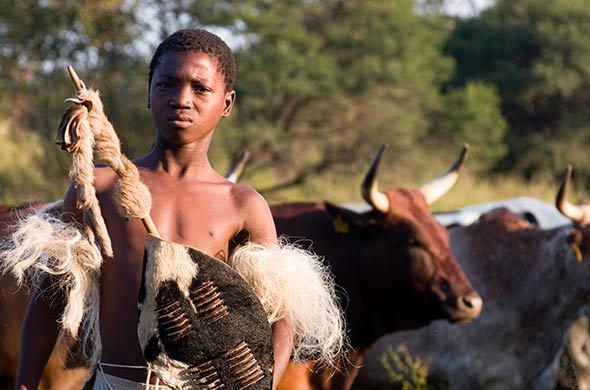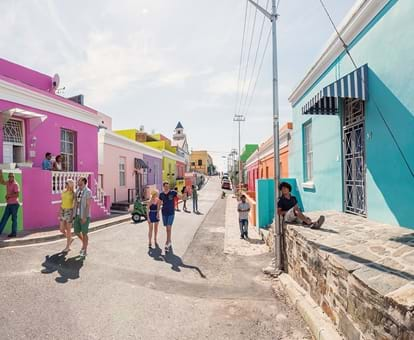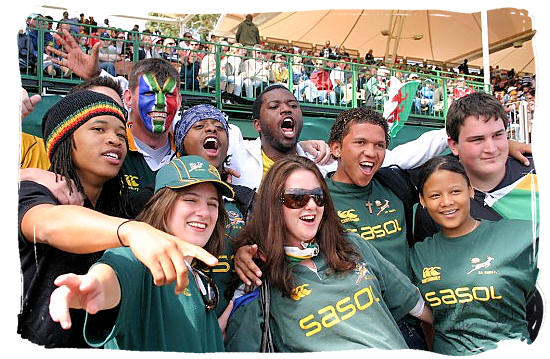South Africa's Diverse Culture: A Blend of Beauty

Introduction
A brief overview of South Africa's diverse culture
In South Africa, you are surrounded by a rich tapestry of cultures shaping the nation's history. The country's diversity is reflected in its eleven official languages, representing different ethnic groups.
South African traditions are deeply rooted in centuries of heritage, with influences from African, European, and Asian cultures. From vibrant festivals to traditional ceremonies, every aspect of life in South Africa is filled with a unique cultural flair.
Traditional Attire
Regarding traditional attire in South Africa, each ethnic group proudly showcases its unique clothing styles. For example, the Zulu people are known for their brightly coloured beadwork and isicholo hats, while the Xhosa community often wear intricately woven exhale headscarves.
In contrast, the Afrikaans community may opt for the veldskoen, a sturdy leather boot perfect for working on farms. The diversity in traditional attire reflects the country's history of different cultural influences.
South African Cuisine
In South Africa, food is not just about sustenance; it's a way of celebrating diverse flavours and culinary traditions. Braai, the South African barbecue, is a popular way to enjoy grilled meats and socialize with friends and family.
Bunny chow, a dish originating from the Indian community, consists of a hollowed-out loaf of bread filled with curry – a perfect fusion of flavours. Bobotie, a spiced minced meat dish with an egg-based topping, is a favourite in many households. The country's cuisine is a delightful blend of flavours from various cultures.

Zulu Culture
Rich history and traditions of the Zulu people
In South Africa, you will find the Zulu people, a community with a rich cultural heritage that dates back centuries. Under the leadership of legendary figures like Shaka Zulu, the Zulu kingdom played a significant role in shaping South African history. Their traditions, including dance, song, and storytelling, are passed down through generations, keeping the spirit of the Zulu people alive. The Zulu language, isiZulu, is an integral part of their identity, reflecting a deep connection to their roots and ancestors.
Zulu cultural festivals and rituals
When exploring Zulu culture, you will encounter vibrant festivals and ritual ceremonies deeply ingrained in the community. The Umhlanga Reed Dance is a traditional ceremony where young Zulu women present reeds to the queen mother, celebrating purity and unity among the tribe.
Warriors showcase their skills during the ceremony by displaying strength and agility, honouring the ancestral spirits. The Zulu people's festivals and rituals testify to their strong sense of tradition and community bond.
Afrikaans Culture
Influence of Afrikaans language and traditions in South Africa
When exploring South Africa, one cannot overlook the influence of Afrikaans culture, a community deeply rooted in the country's history. The Afrikaans language, with its unique blend of Dutch, Malay, and African dialects, symbolises cultural diversity and heritage. Their traditions, such as traditional Afrikaans architecture and culinary specialities, showcase a rich tapestry of customs preserved over generations. The Afrikaans people's strong sense of identity is reflected in their language and customs, contributing to the vibrant cultural landscape of South Africa.
Celebrations and cuisine of the Afrikaans community
In the Afrikaans community, you will find lively celebrations and delectable cuisine that embody the essence of their culture. From the annual Boeremusiekfees, a festival celebrating traditional Afrikaans music and dance, to the beloved braai gatherings where families and friends come together over grilled delicacies, Afrikaans celebrations reflect their close-knit community spirit. The cuisine of the Afrikaans people, known for its hearty stews, savoury biltong, and sweet koeksisters, offers a tantalizing taste of their culinary heritage.

Xhosa Culture
Unique customs and art forms of the Xhosa tribe
When delving into South Africa, you will encounter the distinctive customs and art forms of the Xhosa tribe, a group deeply intertwined with the nation's heritage. The Xhosa language, characterized by its unique click sounds and melodic tones, is a testament to their cultural heritage's richness.
Their traditional practices, such as intricate beadwork and vibrant storytelling through music and dance, offer a glimpse into the traditions passed down for generations. The Xhosa people's profound connection to their land and ancestry is evident in their art forms, showcasing a deep reverence for nature and history.
Xhosa traditional attire and ceremonies
Within the Xhosa community, you will witness the beauty of traditional attire and ceremonies that embody the essence of their culture. From the iconic Xhosa beadwork adorning garments to the rhythmic movements of the traditional dance rituals, Xhosa ceremonies reflect their deep-rooted cultural values and beliefs.
The traditional attire of the Xhosa people, featuring vibrant colours and intricate patterns, visually represents their identity and connection to their ancestors. The ceremonies and rituals, such as the coming-of-age initiation rites, highlight the significance of tradition and community in Xhosa culture.

Cape Malay Culture
History and heritage of the Cape Malay community
Exploring the vibrant tapestry of South African culture, one cannot overlook the rich history and heritage of the Cape Malay community. Originally descendants of slaves brought to the Cape by the Dutch in the 17th and 18th centuries, the Cape Malays have cultivated a unique cultural identity that blends elements of Southeast Asian, African, and European influences.
Their language, known as Afrikaaps, reflects this fusion of languages and traditions, serving as a testament to their diverse heritage. The Cape Malay community's strong sense of identity and resilience in the face of adversity is evident in their vibrant festivals, music, and cuisine that continue to thrive in South Africa today.
Influence of Cape Malay cuisine and music in South African culture
Delving into the culinary and musical landscape of South Africa, you will undoubtedly encounter the profound influence of Cape Malay cuisine and music. The tantalizing aromas of dishes like bobotie, bredie, and koeksisters bear witness to the fusion of spices and flavors that define Cape Malay cuisine.
Their traditional music, characterized by vibrant rhythms and soulful melodies, has seeped into the heart of South African musical traditions, adding a unique flavor to the country's diverse musical heritage. The Cape Malay community's culinary and musical contributions celebrate diversity and cultural exchange, enriching the tapestry of South African culture.

Indian Culture in South Africa
Arrival and contributions of the Indian community in South Africa
In exploring the cultural mosaic of South Africa, one must acknowledge the significant contributions of the Indian community to the nation's rich tapestry. Arriving in the 19th and early 20th centuries as indentured labourers and traders, the Indian community brought a wealth of traditions, languages, and customs that left an indelible mark on South African society. Their influence can be seen in various aspects, from cuisine to religion, adding a distinct flavor to the diverse cultural landscape of the country.
South African Indian festivals and celebrations
Delving into the festive spirit of South Africa, you will find a vibrant tapestry of Indian festivals and celebrations that add color and joy to the nation's cultural calendar. From the colourful and joyous celebrations of Diwali to the solemn observance of Eid, these festivals remind the diverse religious and cultural practices within the South African Indian community.
The music, dance, and culinary delights associated with these festivals showcase the community's commitment to preserving their heritage while also embracing their identity as proud South Africans.

Khoisan Culture
Significance of Khoisan culture in South Africa
Exploring the vibrant cultural landscape of South Africa, one cannot overlook the profound significance of Khoisan culture in shaping the nation's heritage. The Khoisan, with their rich history and unique customs, are considered to be among the oldest indigenous populations in the country. Their language, art, and spiritual beliefs have played a crucial role in influencing various aspects of South African society, from traditional medicine practices to storytelling traditions.
The preservation and celebration of Khoisan culture are essential in recognizing the diverse tapestry of identities that make up modern-day South Africa.
Khoisan traditional beliefs and practices
Delving into the traditional beliefs and practices of the Khoisan, you will discover a deep connection to the natural world and a profound respect for ancestral spirits. The Khoisan traditionally believe in the presence of supernatural forces in nature, often seeking guidance and protection through rituals and ceremonies.
Practices such as trance dancing and shamanism are integral to their spiritual traditions, serving as a means of communicating with the spirit world and maintaining harmony within their communities. The intricate beadwork, rock art, and oral traditions of the Khoisan provide a glimpse into their unique cultural expressions and the enduring legacy of their ancient wisdom.

Coloured Culture
Diverse heritage and identity of the Coloured community
Exploring South Africa's vibrant cultural tapestry requires acknowledging the diverse heritage and identity of the Coloured community. The Coloured people are descendants of various racial and ethnic groups, including indigenous Khoisan, Dutch settlers, African slaves, and Malay Muslims. This unique blend of ancestries has contributed to the rich and multifaceted cultural traditions that define the Coloured community.
From music and dance to cuisine and fashion, Coloured South Africans celebrate their mixed heritage with pride, creating a vibrant and inclusive cultural landscape that reflects their complex history and resilient spirit.
Cultural expressions and languages of Coloured South Africans
Delving into the cultural expressions and languages of Coloured South Africans reveals a fusion of influences from diverse backgrounds. Music genres like Cape Jazz and Ghoema reflect the blend of African, European, and Asian musical traditions, showcasing the creativity and resilience of the Coloured community.
Languages such as Afrikaans and Kaaps, a distinct creole language, are integral to Coloured identity, serving as vehicles for storytelling, communication, and cultural preservation. Through art, language, and traditions passed down through generations, Coloured South Africans continue to celebrate their unique cultural heritage and contribute to the vibrant mosaic of South African society.
